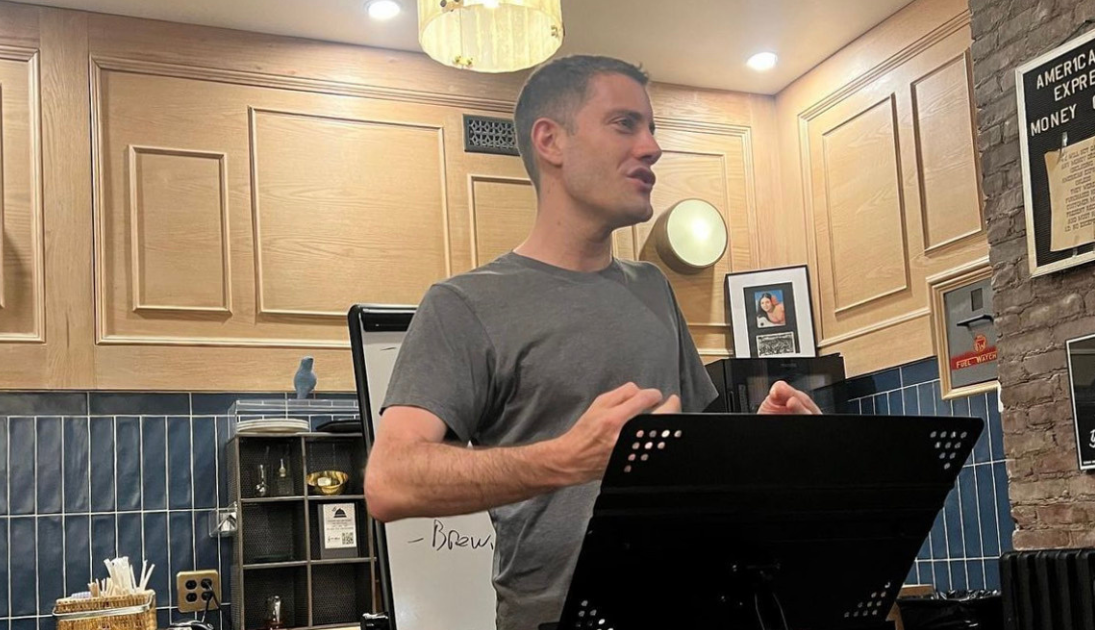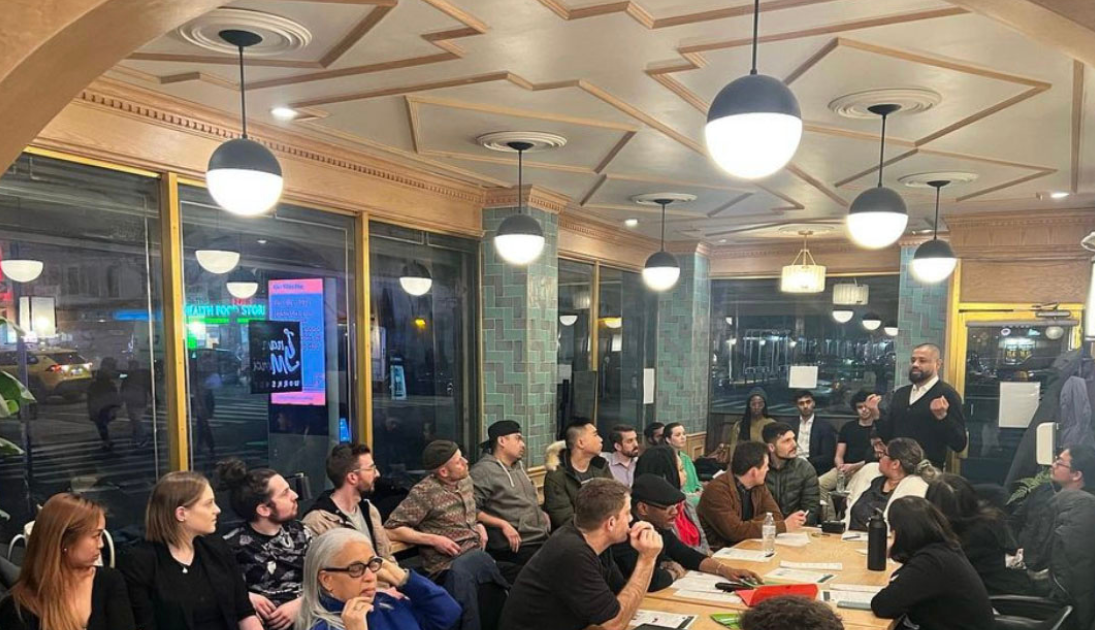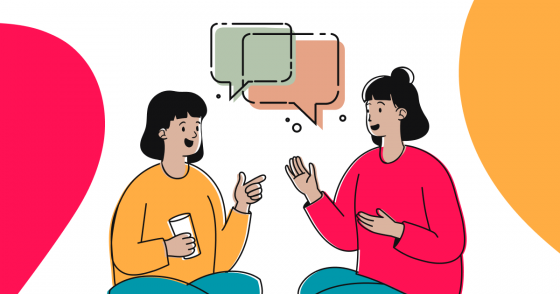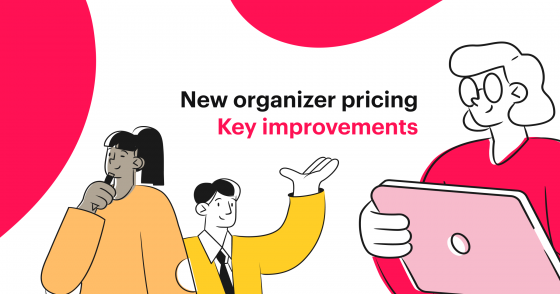Clammy hands, stomach butterflies, and a desire to hide are all common sensations for those of us tasked with addressing a crowd who don’t have a fondness for public speaking. In fact, fear of public speaking is one of the most common phobias for adults.
I spoke with Richard Pastena, who organizes the New York-based Greenspeakers Toastmasters Meetup group, a community dedicated to helping members practice public speaking. Richard shared strategies for introverts like me who want to improve their public speaking skills. Read on for tips to build confidence and have listeners hang off your every word.
Hi, Richard! What brought you to Meetup?
I joined in 2008 after moving to NYC. It was helpful for someone like me who was young and didn’t have a large network in the city. I’ve used the Meetup since then and found many friendships along the way. People come and go in NYC so you need to keep making the effort to connect with others no matter how long you’ve lived here.
Why did you decide to create a Meetup group for your Toastmasters club?
The Toastmasters International Organization in the NYC area encouraged clubs to create Meetup groups in the mid-2010s. The idea was to connect with potential new members and build community. My group and I pride ourselves in succeeding both as a Meetup community where people can have fun and make new friends, while also being a Toastmasters club that provides a supportive learning environment for people to practice and improve their public speaking skills.
I have a major fear of public speaking, and I feel like the fear gets worse every year. What advice do you have for someone like me?
It’s important to receive feedback and tips from others who are on the same journey and gain inspiration from those who started in a similar place as you. I’d highly recommend attending a Toastmasters meeting, preferably in person. You want to seek out a supportive learning environment where you can take small steps and gradually progress. Those who attend Toastmasters are used to meeting people who are new to or have a fear of public speaking, so there’s no need to be embarrassed by it.
Improv or acting classes can be helpful as well. Any type of event where you get to practice and receive supportive feedback designed to help you improve.
Okay, great point. Let’s say I find a group. What’s a common mistake that hesitant public speakers should be aware of?
It’s important to be mindful of your use of filler words such as “like,” “um,” “so,” “you know,” etc. At our meetings, we keep track of speakers’ filler words so they can be aware of and reduce or eliminate their usage. Once you recognize your speaking patterns, you’ll notice it when you slip into it. Instead of using a filler word, we encourage our members to use pauses. Pausing is a powerful tool in speech: it builds anticipation of what you have to say without diluting your message.
That’s, um, genius! What are your events like? How do you make sure that people feel comfortable doing something they might otherwise dread?
Every Toastmasters meeting has a set agenda we print out beforehand. The events are very interactive; we need people there to keep time, count filler words as I mentioned, and give words or quotes of the day as speaking prompts. Everyone who attends practices their public speaking. It’s common for people who are attending for the first time to help with the running of the event, which is excellent for retention. It’s important to have a welcoming environment. Each person briefly introduces themselves to the group and answers a check-in question that the Toastmaster (the host for the evening) selects.
After that, there is time for impromptu public speaking called “table topics,” where attendees are asked a random question by the Topics Master, and then have one to two minutes to answer while standing in front of the group. These speeches are delivered off the cuff, but the short timeframe and the casual topics provide a low-pressure way to get more comfortable with public speaking. Attendees are challenged to think on their feet. It’s fun and casual, and is the highlight of the meeting for many.

Keep it casual, that’s good advice. I’m sure that makes it easier for people to step outside of their comfort zones.
Yeah, for sure. We also give people time to prepare. After the impromptu speaking practice, we have the prepared speeches portion, which Toastmasters is well known for. In my opinion, the prepared speeches are what truly let people get over their fear of public speaking. Attendees sign up in advance to deliver 5–7 minute prepared speeches on a topic of their choosing. It’s at this point that attendees see what a huge difference it makes to practice public speaking skills and what can be achieved by those who believe in themselves enough to stand up in front of a group of more than 20 people and give a speech. Often, our members share personal stories from their lives in an entertaining way, with a call to action at the end to inspire positive change on the part of the audience.
What kind of feedback do your members get on their public speaking?
Feedback is essential to the process. An experienced member of the club evaluates each speech and shares positive feedback along with recommendations for improvement. The observations are both helpful for the speaker and those in the audience who may give a speech in the future. In addition, other attendees make written observations to share with the speaker so the speaker can get insights from people with all kinds of different backgrounds and experience levels.
Practice is also crucial. If you want to improve as a public speaker, you have to build your comfort level through practice, get feedback, and implement it. You can also review recordings of your public speaking to analyze areas for improvement. Consider things like eye contact with your audience (or lack thereof), body movement, and overall presentation. We do all of this at our Toastmasters events so that our members can improve their skills and build confidence.
What kinds of events do you want to try in 2024?
Our focus will be continuing to offer quality in-person events where people can connect and practice public speaking. People need the opportunity for people to connect in person. Since the pandemic, there’s been a major shift toward telecommunication, but that comes at a cost. So many people I meet at events are looking for that connection with others that only comes from being together in person.
We also want to be a community-focused organization where people can make friends. Having the occasional social event that doesn’t have the structured Toastmasters agenda, as we did before the pandemic, is something we’re considering for the future. Our goal is to provide a supportive learning environment, and there’s no better way to do so than by creating friendships.
For more advice on public speaking, join the upcoming Meetup Live Seminar Series: 4 Steps for Polished Public Speaking on Thursday, December 14, 2023.
Last modified on December 6, 2023










